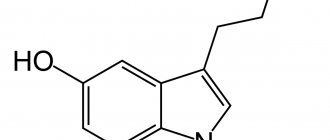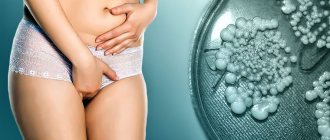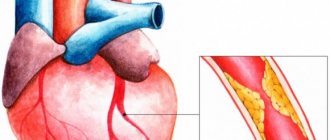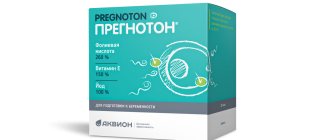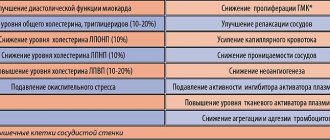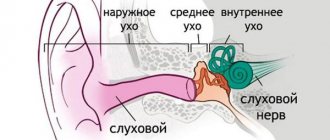What is dopamine? It is called differently: the hormone of joy, happiness, pleasure, and they also say that it is it that controls our passions. A person’s behavior, mood and even character largely depend on this hormone. It is responsible for attention and motivation, and activates the desire to study. Which of all this is true and which is exaggeration, whether it is necessary to replenish dopamine reserves in the body and how to do it correctly - we will talk about all this in the article.
Dopamine: what is it?
Dopamine is a chemical substance (neurotransmitter) produced by the brain and adrenal glands that is involved in the transmission of nerve impulses, as well as in the synthesis of another known hormone, adrenaline. A surge of the latter causes an increase in breathing and heart rate in the body, a rush of blood to the skin and muscles.
Content:
- Dopamine: what is it?
- Functions in the body
- Why is dopamine deficiency dangerous?
- Excess dopamine is also harmful
- Dopamine and the formation of addictions
- Why does dopamine deficiency occur?
- How to Increase Dopamine Levels
The release of dopamine also occurs in situations of shock to a person, during times of severe stress or pain. In such cases, it helps to adapt to extremely difficult conditions - it prevents you from dying from pain or fear. In addition, the hormone is responsible for regulating sleep cycles and human cognitive abilities.
Neurophysiologists classify dopamine as a group of transmitters - substances that are responsible for transporting signals between brain cells. That is, thanks to dopamine, the impulse is transmitted from neuron to neuron - a kind of cell language.
But why is this hormone credited with such a wide range of actions? It turns out that the effect of dopamine on the body depends on a variety of factors, including what other transmitters dopamine comes into contact with during impulse transmission.
Dopamine is responsible for the incentive to do something and closely interacts with the so-called reward system, which scientists have found in the human brain. To understand how this system works, it is enough to remember the well-known carrot and stick method, when after praise a person feels joy and desire to do something even better. In addition, dopamine affects the centers of the brain responsible for memory, curiosity and learning.
Vitamins and minerals increase dopamine levels
Magnesium plays a central role in the synthesis of neurotransmitters such as serotonin, GABA and dopamine. It is found in large quantities in many foods such as green leafy vegetables, avocados, fish, nuts, and pumpkin seeds.
Vitamin D is important for the health of the nervous system. It protects dopaminergic neurons from inflammation and oxidative stress.
The main source of vitamin D is sunlight. It is also obtained from certain foods such as fatty fish (mackerel, salmon, tuna), egg yolk, milk.
Functions in the body
Experts are still continuing to study what functions dopamine performs in the human body. Below we consider the most famous theories.
- Responsible for the feeling of pleasure. When dopamine interacts with the center of the reward system, a person experiences feelings of joy, pleasure and relaxation.
- Forms motivation. Experts have discovered that dopamine not only activates the reward system, causing a feeling of pleasure as a result of an action, but also gives impetus to this action. Thus, dopamine helps create and maintain motivation. Therefore, if the body lacks the hormone, a person’s motivation decreases or anhedonia develops (a condition in which the ability to experience pleasure is lost).
- Improves cognitive function, learning and memory. Many experts believe that dopamine is one of the key factors responsible for memory and learning processes. It turns out that this hormone helps a person remember new information more easily. And all because it is able to strengthen the connection between the nucleus accumbens and other centers of the brain responsible for memory. There is also another theory that explains the effect of dopamine on learning ability. It has been proven that some people (especially women) tend to remember information more easily if it evokes certain emotions. And since dopamine affects the centers of the brain responsible for the emotional state, this makes it useful for learning. In addition, it has been proven that dopamine is also the basis of associative learning.
- Arouses curiosity. Curiosity can be regarded as a kind of internal motivator, pushing you to look for answers and learn more new things. In other words, thanks to healthy curiosity, a person develops a desire for learning, research, and self-improvement. And dopamine is also responsible for this desire. Interestingly, curiosity is closely related to a person’s ability to remember. The fact is that in both cases the hormone affects the same centers of the brain. Therefore, people tend to remember information obtained out of curiosity easily and for a long time (even if it is not so important to them).
- Reveals creative potential. Scientists have discovered a connection between dopamine and creativity. Although it was also discovered that in people with very pronounced creative abilities, dopamine receptors are in many ways similar to the receptors of people suffering from schizophrenia. It turned out that the former and latter had a lower density of dopamine receptors in the thalamus (the area of the brain that filters received information, as well as participates in the processes of reasoning and cognition). That is, due to less filtering, more information enters the brain of such a person. That is why, at the time of decision-making, creative individuals offer many unusual options, and schizophrenics have associations that are strange for healthy people.
- Impact on character. According to the results of many studies, dopamine influences a person’s level of impulsiveness and is also responsible for the desire for new sensations. The higher the activity of dopamine receptors, the more impulsive a person is. Such people are more prone than others to risky behavior, as well as various kinds of addictions.
- Helps fight cancer. This opinion was expressed by experts from Ohio State University (USA). A team of scientists led by Sujit Basu discovered that dopamine slows the growth of blood vessels within a malignant tumor. Since the vessels for cancerous formations serve as a source of nutrition, along with stopping the growth of capillaries, the growth of the malignant tumor also stops. In addition, scientists said that dopamine can alleviate the negative side effects of 5-fluorouracil, which is used in chemotherapy. In particular, the hormone prevents changes in the blood formula after therapy with this substance.
- Prevents myopia. Several years ago, a group of specialists from Australia stated that the cause of myopia in modern youth may be a lack of dopamine. According to scientists, nowadays people spend more and more time on computers and smartphones, and are less and less on the street, and this is the main cause of myopathy. The fact is that under the influence of bright daylight, dopamine is produced in the retina of the eyes. When a person spends less time in the sun, the hormone is produced in insufficient quantities, which causes elongation of the eyeball and, accordingly, myopia.
PLEASURE HORMONES: HOW TO GET THEM
22 January 2022 10:01
Quantity
Dopamine, serotonin, endorphins. How to get more “pleasure hormones” without harming yourself? The human body produces many substances that cause pleasant sensations: pleasure, good mood, euphoria. Biochemists call all these substances neurotransmitters because they are responsible for the transmission of nerve impulses. However, in common parlance, for some reason, many people call dopamine, serotonin and endorphins pleasure hormones. The question arises: how can a person get more of these same “hormones” without harming his health? Dopamine: Favorite Dopamine transmits nerve impulses in the mesolimbic pathway of the brain, which is responsible for the expression of pleasure. The higher the dopamine level, the brighter the sensations. Pleasure hormones Serotonin, dopamine, endorphins - these substances are often called pleasure hormones. How do they work? No one will deny themselves pleasures. That's why people strive to increase their dopamine levels in the brain. However, everything is not so simple here. The simplest idea seems to be to take dopamine as a medicine. But it is not only a neurotransmitter responsible for the transmission of nerve impulses, but also a normal hormone that affects the functioning of the heart. And drinking cordials just for fun is extremely dangerous. But substances that cause the production of dopamine in the neurons of the mesolimbic pathway are common. This is alcohol and nicotine. In addition, other components of tobacco smoke, as well as some drugs (such as cocaine), block the destruction of dopamine after it has had its intended effect - and the level of pleasure in the brain increases. However, alcohol, nicotine and other drugs are called that because they cause addiction, in addition to other serious health consequences. So the pleasure received is bought at too high a price. In addition, giving up stimulants when an addiction has already formed leads to so-called withdrawal, so it is better not to start at all. What then remains? What brings joy. For example, sex with a loved one causes a strong release of dopamine. Music and any other pleasurable activities produce approximately the same effect. By the way, even thoughts about the upcoming pleasant task cause the release of dopamine. Serotonin: food and solar batteries If dopamine is the “pleasure hormone,” then serotonin is the “good mood hormone.” Its release in the body leads to improved mood and increased physical activity. But a lack of serotonin leads to depression. There are medications that increase serotonin levels in the body. This is what antidepressants do: they block the reuptake of serotonin at synapses after serotonin has served its purpose. But you should never use them without a doctor’s prescription. Without an individual prescription, it is very easy to exceed the dose, and excess serotonin in the body can even lead to death. In addition, unlike dopamine, serotonin levels can be more or less safely increased by eating something suitable. The fact is that serotonin is formed in the body from the amino acid tryptophan, and that is why foods rich in tryptophan (for example, dark chocolate, nuts, dates and bananas) also lead to some emotional uplift. A kind of natural antidepressant. However, you need to remember that these products are high in fat or sugar. Therefore, you shouldn’t eat chocolate bars or kilograms of bananas to improve your mood. But there are no such restrictions for eating tomatoes, which are also rich in tryptophan. Causes an increase in serotonin levels and sweetness. Here, the chemical path from food to the brain takes longer: glucose arriving as part of carbohydrates causes the release of insulin into the blood, which stimulates the decomposition of proteins into amino acids in tissues, and, accordingly, an increase in the level of tryptophan in the blood. But there is danger here too. Firstly, excess carbohydrates lead to excess weight. And, secondly, there is a chance to get “sweet tooth syndrome”: the body quickly gets used to the fact that sweets lead to an increase in serotonin levels, and at any hint of depression, it demands as many additional sweets as possible. In addition, the synthesis of serotonin in the body is stimulated “on its own” - thanks to sunlight. This is why many people feel depressed if they are nocturnal or in winter. So it is useful to take most of your vacation not in the summer, when there is already a lot of sun, but in the cloudy season - late autumn and winter. Go to a place where daylight hours are still long enough. Just don't get carried away with tanning. Sunburn and melanoma are too much to pay for excess serotonin, and it can be light even where the temperature is too low for visiting the beach. Endorphins - a gift for pregnant women Endorphins are produced by the body in response to stress in order to reduce pain. By binding to the so-called opiate receptors, they suppress pain and cause euphoria - a kind of reward to the body for getting rid of pain. Many drugs (opium, for example) work in exactly the same way; it’s not for nothing that the receptors are called opiate. Only drugs are stronger and manage to contact the receptors first. However, artificial stimulation of opiate receptors, as in the case of dopamine, causes rapid and persistent addiction. And, as soon as the artificial stimulant disappears, the body begins to have problems - both with pain and with euphoria. The so-called withdrawal syndrome is triggered: the appearance of symptoms that the substance worked to eliminate. Is there a way to increase the amount of endorphins in the body without harming the body? Of course there is. Firstly, biochemists are of the opinion that the euphoria from contact with works of art and the euphoria of orgasm are of an endorphin nature. Secondly, small amounts of endorphins are produced during moderate physical activity. This is how the body prepares itself for stress, which is the load. To increase endorphins, long-term regular exercise is required. There is even such a term - “runner's euphoria” - a state of slight emotional high during a long run. So run, jump and dance to your heart's content - in the truest sense of the word. Well, thirdly, nature has given a gift to all women - starting from the third month of pregnancy, endorphins enter the bloodstream. Not a bad bonus!
Track. news
Prev. news
Why is dopamine deficiency dangerous?
With a lack of dopamine, people tend to experience increased anxiety, loss of motivation, they suffer from boredom and depression, they stop feeling pleasure from life, and they stop enjoying things that previously brought them pleasure. Such individuals lack ambition and healthy drive, and they do not have the ability to form long-term attachments. Against the background of dopamine deficiency, libido decreases, erectile dysfunction is possible, the risk of diabetes and obesity increases, sleep problems, forgetfulness, and fatigue appear even in the absence of physical activity.
Dopamine deficiency can be the cause of various diseases, including phobias, major depression, hyperactivity disorder and attention deficit disorder, Parkinson's disease and some other disorders associated with impaired cognitive abilities. But if the cause of Parkinson's disease is the degradation of parts of the brain that are responsible for producing dopamine, then other disorders are the result of a direct deficiency of the hormone itself. Therefore, therapy for such disorders involves taking drugs that increase dopamine levels. But in medical practice, increasing the hormone is a strictly controlled process. Incorrect therapy can cause addiction in the patient and increase the amount of the hormone in the body to toxic levels.
Main symptoms of deficiency
The neurotransmitter hormone dopamine is responsible for the functioning of the heart, brain, nervous system, as well as the psycho-emotional background.
You have a deficiency of this hormone if you notice:
- frequent mood changes;
- fatigue without physical activity;
- inability to concentrate on any action, the need for constant procrastination (putting off important things);
- decreased sex drive;
- hopelessness, lack of motivation;
- forgetfulness;
- sleep problems.
In detail and clearly about the essence of the hormone’s action on the human body:
If you stop enjoying simple things: new purchases, a vacation by the sea, a massage, or simply lying on the couch watching your favorite movie, these are also signs of a decrease in dopamine.
A constant lack of dopamine stimulates the development of mastopathy, Parkinson's disease, anhedonia (inability to experience pleasure), a significant decrease in the quality of life, and also threatens irreversible consequences for brain structures.
Excess dopamine is also harmful
It would seem that there is no such thing as too much happiness, which means that the hormone that causes this feeling is useful in any quantity. But this is a mistaken opinion. Excessively high levels of dopamine can cause various mental illnesses. Most often these are schizophrenia and bipolar disorders. To treat such patients, drugs that inhibit the activity of the hormone are used. In addition, an excess of this substance makes people overly impulsive, aggressive, prone to mania, psychosis, fetishism, unhealthy risk-taking, and sexual addiction.
Who to contact if you have low dopamine levels
If you feel tired, distracted, cannot concentrate at work, suffer from forgetfulness or have problems sleeping, contact a neurologist. To check your dopamine levels, your doctor will send you for tests. Based on a urine test for catecholamines, the specialist will prescribe treatment, recommend a diet and a set of physical exercises.
If you have repeatedly experienced fluctuations in hormone levels, adhere to the principles of a healthy lifestyle. Choose healthy foods and exercise regularly.
Dopamine and the formation of addictions
The basis of any type of addiction always lies in the brain and, in particular, in the activity of dopamine. It takes some time for addiction to form. A person first performs some action, which is associated with a surge of dopamine, and he feels pleasure. If this chain is repeated several times, a person becomes addicted - he repeats the same actions that are a source of pleasure for him. Interestingly, this circuit was embedded in the human brain during the process of evolution as one of the mechanisms promoting self-preservation. For example, eating food is necessary to maintain vitality, sex is necessary for procreation.
But if dopamine is synthesized in excess, the brain eventually stops responding to it. As a result, the pleasure from this or that activity decreases. Therefore, people with bad habits, in their desire to experience pleasure of the same intensity, must constantly increase the dose of the source of joy. But what is important to understand is that dopamine itself does not cause addiction to, for example, drugs. This hormone keeps you motivated to find a source of joy. And several other mechanisms are directly responsible for the formation of dependencies.
Something similar (but without the physical addiction) happens to people who try to deal with stress or bad mood by eating, shopping, or other pleasurable activities. But as scientists have noted, in such cases, dopamine levels can rarely rise to dangerous levels.
Why does dopamine deficiency occur?
Various factors can lead to a lack of this hormone. For example:
- poor nutrition;
- chronic stress;
- hormonal imbalance;
- taking drugs that suppress the production of dopamine;
- drug addiction.
In addition, the production of the pleasure hormone deteriorates in old age. And this partly explains the decline in cognitive function in older people.
What benefit do we have from this unique hormone then?
It turns out that dopamine not only gives the experience of happiness, but also regulates muscle movement.
In addition to this, dopamine:
- improves thinking abilities
, - helps you concentrate
when making important decisions, - makes it possible to adequately assess the importance of the problem
, - is important for the functioning of the brain, central nervous system, and heart.
As soon as we do what we love, the brain produces dopamine and we are full of energy, we are in mild euphoria, we feel able to move mountains.
Hormone deficiency can lead to serious consequences
, such as:
- depression, lack of interest in life,
- problems of the heart and blood vessels,
- obesity, diabetes mellitus,
- persistent fatigue
- irritability,
- Parkinson's disease,
- a rare disease called anhedonia - loss of the ability to experience pleasure in general,
- decreased sexual desire.
How to Increase Dopamine Levels
It has been scientifically proven that any activity that brings pleasure to a person is a good way to increase the amount of dopamine in the body. The exception is drug addiction, alcoholism, tobacco addiction, outbursts of aggression and violence, even if the person experiences pleasure from it.
Doing what you love and the amount of dopamine in the body is a kind of vicious circle. For example, a person is interested in floriculture. This activity gives him a surge of dopamine. In turn, the increase in the pleasure hormone encourages him to repeat actions associated with his favorite activity again and again.
A similar thing happens in the body of gourmets. Eating your favorite treat activates the production of dopamine. But what’s interesting is that, as a rule, active production of the hormone is caused by far from the most beneficial foods for health and figure. For a few people, the amount of dopamine increases from eating broccoli or steamed cutlets, but most will enjoy chocolate, smoked meats and other not very healthy foods. But this does not mean that in order to increase the hormone you should become a slave to your harmful gastronomic preferences. If you know some secrets, you can try to deceive the body and increase the amount of the hormone not with foods that the brain requires, but with more useful ones.
To synthesize dopamine, the body needs the amino acid tyrosine.
Hence the first piece of advice - to increase the amount of dopamine, you need to eat foods rich in tyrosine. But the body can obtain tyrosine in another way: from another amino acid - phenylalanine. That is, in order to maintain normal levels of the pleasure hormone, it is not necessary to follow your addictions. It is enough to eat foods rich in these amino acids. Products containing tyrosine and phenylalanine
| Product | Tyrosine | Phenylalanine |
| Vegetables | Brussels sprouts, green peas (fresh), greens, beets | Cauliflower, soy, green beans |
| Fruits, berries | Oranges, apples, watermelon | Strawberries, bananas |
| Cereals, seeds | Oatmeal, whole grain cereals, whole grain bread, sunflower seeds | wheat sprouts |
| Nuts | Walnuts, hazelnuts | – |
| Fish | Salmon, mackerel | Mackerel, herring |
| Meat | Beef, lamb, chicken | Red meat, chicken |
| Dairy | Cottage cheese, hard cheese, kefir | Hard cheeses |
Plants
Green tea also helps increase dopamine levels. But it is important to note that its effect in this regard is very short-lived. In addition, some plants with medicinal effects will help enhance hormone production:
- vitex (twig);
- Red clover;
- mucuna;
- spirulina;
- gingko biloba;
- Rhodiola rosea.
Drugs that increase dopamine
There are actually quite a lot of them, both among dietary supplements and more serious medications. But it should be noted that some drugs from this group cannot be taken without consulting a specialist.
Substances that increase dopamine:
- vitamin B6;
- L-tyrosine;
- beta-alanine;
- berberine;
- phosphatidylserine;
- citicoline and similar drugs from the group of nootropics.
Other tips
Medications and diets are not the only ways to improve your well-being by normalizing dopamine production. The well-known dopamine stimulants in the body are various amenities in which many of us consciously or unconsciously limit ourselves.
Walks in the open air
10-15 minutes in the fresh air will give you a boost of energy and good mood. Don't miss the opportunity to take a walk during your lunch break. Sunlight increases the number of receptors that detect dopamine. They do not affect the level of the hormone, but improve the quality of its perception by the body.
Physical exercise
After any physical activity, the level of dopamine and serotonin in the body increases. This happens regardless of the duration and intensity of the workout, warm-up or exercise. That is why immediately after training, despite fatigue, we feel a surge of strength and energy, even if we had neither the strength nor the desire to go to training.
Change your lifestyle
If you lead a sedentary lifestyle, try to introduce more activity into your routine. Do exercises, meditate. Even the simplest breathing exercises help you relax and feel your mood improve.
© Kahovsky — depositphotos.com. 6 Ways to Boost Dopamine
Say “Thank you” more often!
The feeling of gratitude gives us positive emotions and provokes the production of dopamine.
Thank your loved ones more often for various little things: prepared tea, small help around the house, any kind of attention to you.
This will have a positive effect on your psycho-emotional state and hormonal levels.
Set goals and reward yourself for achieving them
If you've ever wanted to learn how to knit, organize your desk, go through your wardrobe, complete paperwork, or do any other action that has been put on the back burner for various reasons, do it. After completing it, reward yourself with a cup of delicious tea or chocolate, watching your favorite movie, shopping, walking or traveling.
Maintain a sleep-wake schedule
Try to sleep no less and no more than 7-8 hours a day. This time is enough for proper rest, recuperation and well-being. The lack of a good night's rest negatively affects the number of pleasure hormone receptors.
Cool shower
A cool morning shower gives you a surge of strength, vigor and good spirits for the whole day. This procedure doubles dopamine levels, stimulating productivity and activity throughout the day.
Have sex regularly
Physical intimacy causes a surge of hormones in both partners. Regular sex life improves mood, normalizes hormonal levels and maintains the level of pleasure hormone at the proper level.
Massage
Even light massage movements, stroking, and gentle touches also stimulate the production of dopamine, and what can we say about a good sports massage. Hug your loved ones more often, pet them, and don’t refuse a light massage. Just a few minutes of massage in the evening will give you great pleasure.
It has been proven that dopamine increases with burns, injuries, pain syndromes of various etiologies, blood loss, feelings of fear, anxiety, and stressful conditions. It helps the body overcome these situations.
Nicotine, alcohol and caffeine increase dopamine, but this increase is short-lived. Getting used to pleasant sensations after drinking alcohol, smoking or a cup of coffee, a person strives to experience them again. This is how addictions are formed that briefly increase dopamine, but invariably reduce the degree of its production in the body without external “stimulants”. This causes irritability, depression, dissatisfaction with oneself and life circumstances (source in English - PubMed library).
